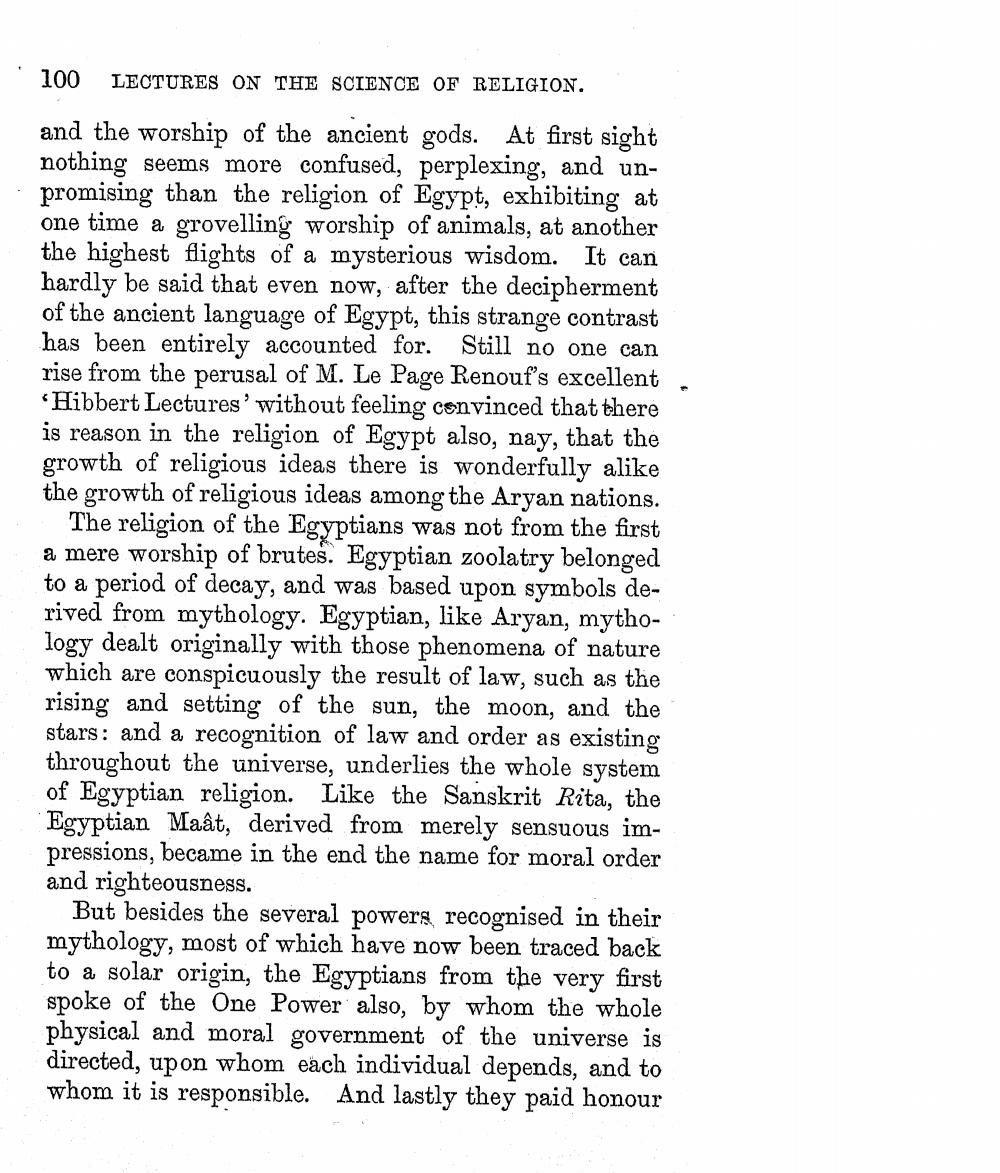________________
100 LECTURES ON THE SCIENCE OF RELIGION.
and the worship of the ancient gods. At first sight nothing seems more confused, perplexing, and unpromising than the religion of Egypt, exhibiting at one time a grovelling worship of animals, at another the highest flights of a mysterious wisdom. It can hardly be said that even now, after the decipherment of the ancient language of Egypt, this strange contrast has been entirely accounted for. Still no one can rise from the perusal of M. Le Page Renouf's excellent 'Hibbert Lectures' without feeling convinced that there is reason in the religion of Egypt also, nay, that the growth of religious ideas there is wonderfully alike the growth of religious ideas among the Aryan nations.
The religion of the Egyptians was not from the first a mere worship of brutes. Egyptian zoolatry belonged to a period of decay, and was based upon symbols derived from mythology. Egyptian, like Aryan, mythology dealt originally with those phenomena of nature which are conspicuously the result of law, such as the rising and setting of the sun, the moon, and the stars: and a recognition of law and order as existing throughout the universe, underlies the whole system of Egyptian religion. Like the Sanskrit Rita, the Egyptian Maât, derived from merely sensuous impressions, became in the end the name for moral order and righteousness.
But besides the several powers recognised in their mythology, most of which have now been traced back to a solar origin, the Egyptians from the very first spoke of the One Power also, by whom the whole physical and moral government of the universe is directed, upon whom each individual depends, and to whom it is responsible. And lastly they paid honour




